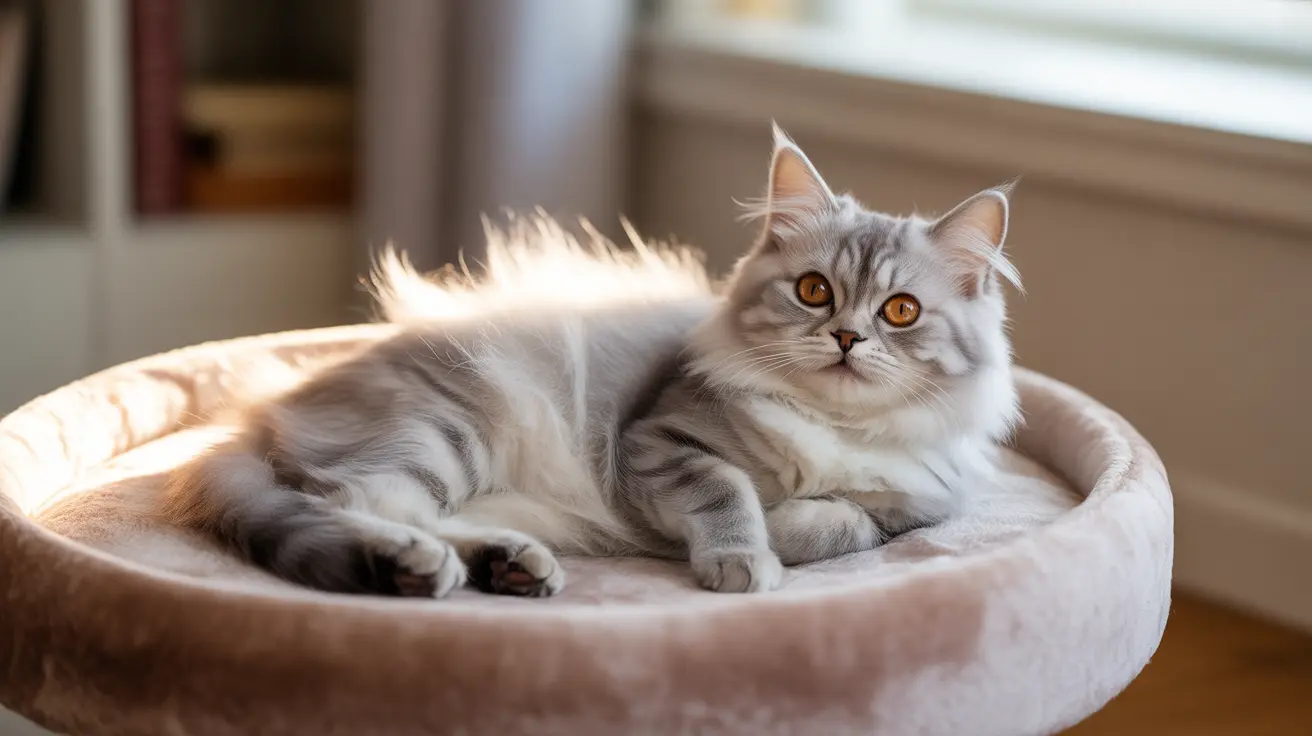Are Munchkin Cats Really Hypoallergenic?
If you're considering adding a Munchkin cat to your family while managing allergies, it's crucial to understand the facts about these unique felines and their allergen production. Despite their distinctive short-legged appearance, Munchkin cats are not hypoallergenic, and they produce the same allergens as other cat breeds.
Like all cats, Munchkins produce Fel d 1, the primary protein responsible for triggering allergic reactions in sensitive individuals. This protein is present in their saliva, skin cells, and urine, making it impossible for Munchkin cats to be truly hypoallergenic.
Understanding Cat Allergens and Munchkin Cats
Munchkin cats produce several types of allergens, with Fel d 1 being the most significant. This protein is primarily produced in their sebaceous glands and spread throughout their coat during grooming. When these proteins become airborne as microscopic particles, they can trigger allergic reactions in sensitive individuals.
While no cat breed is completely hypoallergenic, some breeds produce fewer allergens than others. However, Munchkin cats do not fall into this category, as their allergen production is similar to that of most domestic cats.
Managing Allergies with a Munchkin Cat
If you're determined to share your home with a Munchkin cat despite having allergies, several strategies can help minimize exposure to allergens:
- Create allergen-free zones, especially in bedrooms
- Use HEPA air purifiers throughout your home
- Vacuum frequently with a HEPA-filtered vacuum
- Wash your hands after petting or handling your cat
- Regular grooming sessions (preferably outdoors or in a well-ventilated area)
Grooming Requirements and Allergen Control
Regular grooming is essential for reducing allergen levels in your home. For Munchkin cats, this includes:
- Weekly brushing to remove loose fur and dander
- Monthly baths using cat-specific shampoo (if tolerated)
- Regular cleaning of cat beds and favorite resting spots
- Wiping down your cat with pet-specific wipes between baths
Frequently Asked Questions
Are Munchkin cats hypoallergenic or less likely to cause allergies?
No, Munchkin cats are not hypoallergenic and are just as likely to cause allergic reactions as other cat breeds. They produce the same allergens, including Fel d 1, that trigger cat allergies.
What causes allergic reactions in people who own Munchkin cats?
Allergic reactions are primarily caused by the Fel d 1 protein found in cat saliva, skin cells, and urine. When cats groom themselves, these proteins spread to their fur and eventually become airborne.
How can I reduce cat allergens if I have a Munchkin cat at home?
Regular cleaning, using HEPA air purifiers, frequent vacuuming, and maintaining a consistent grooming schedule can help reduce allergen levels. Creating designated pet-free zones can also help manage exposure.
Is there a difference in allergen levels between short-haired and long-haired Munchkin cats?
While both varieties produce the same amount of allergens, long-haired Munchkin cats may trap more dander and allergens in their coat, potentially leading to more allergen distribution when shedding.
What allergy symptoms should I watch for if I have a Munchkin cat?
Common symptoms include sneezing, runny nose, itchy or watery eyes, skin rashes, and respiratory issues. If you experience severe symptoms or difficulty breathing, consult a healthcare provider immediately.
Conclusion
While Munchkin cats make wonderful pets with their unique appearance and playful personalities, they are not hypoallergenic. If you have cat allergies but still wish to adopt a Munchkin, implement proper allergen management strategies and consult with both your allergist and veterinarian to create a plan that works for both you and your future feline friend.






